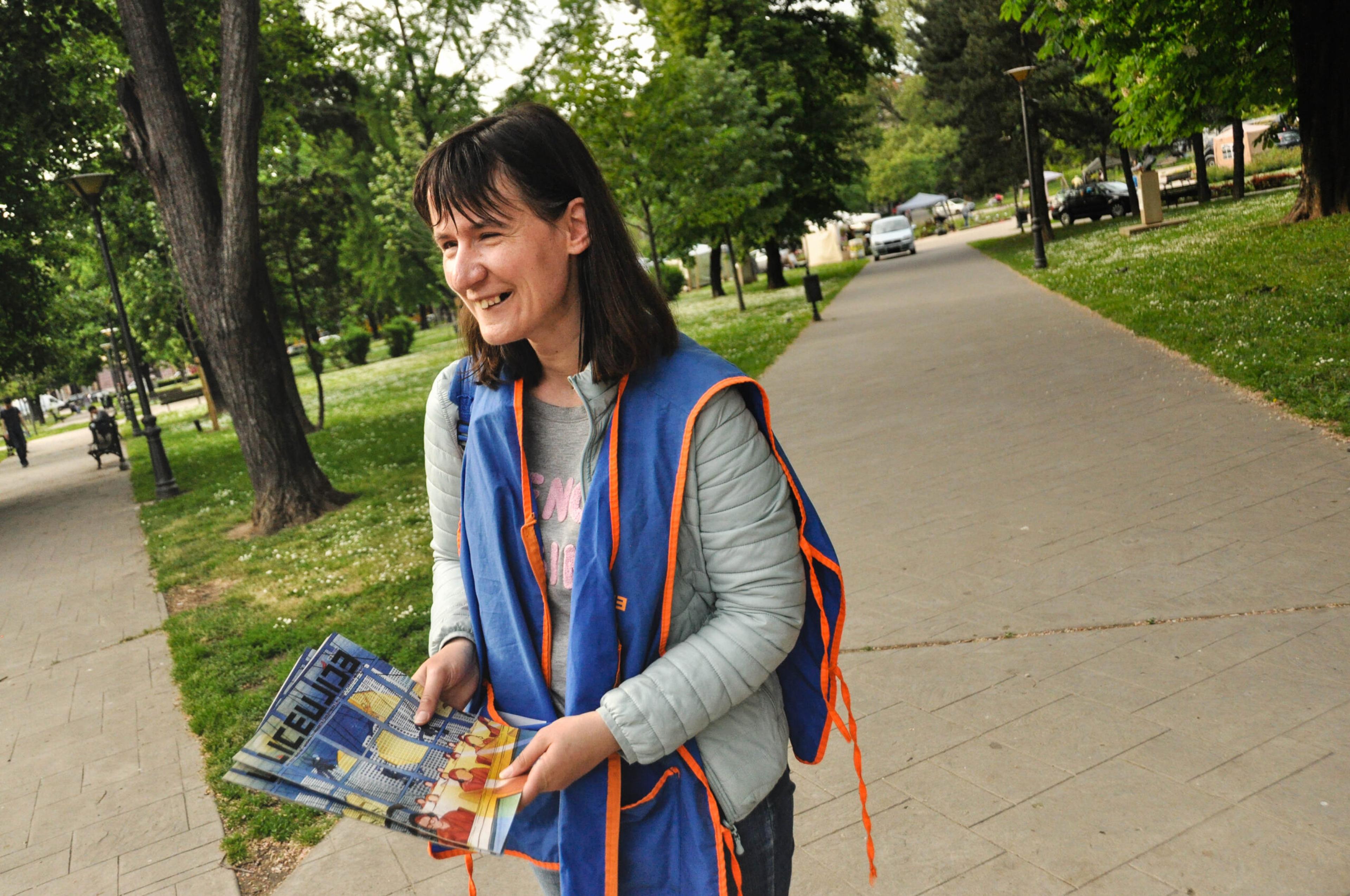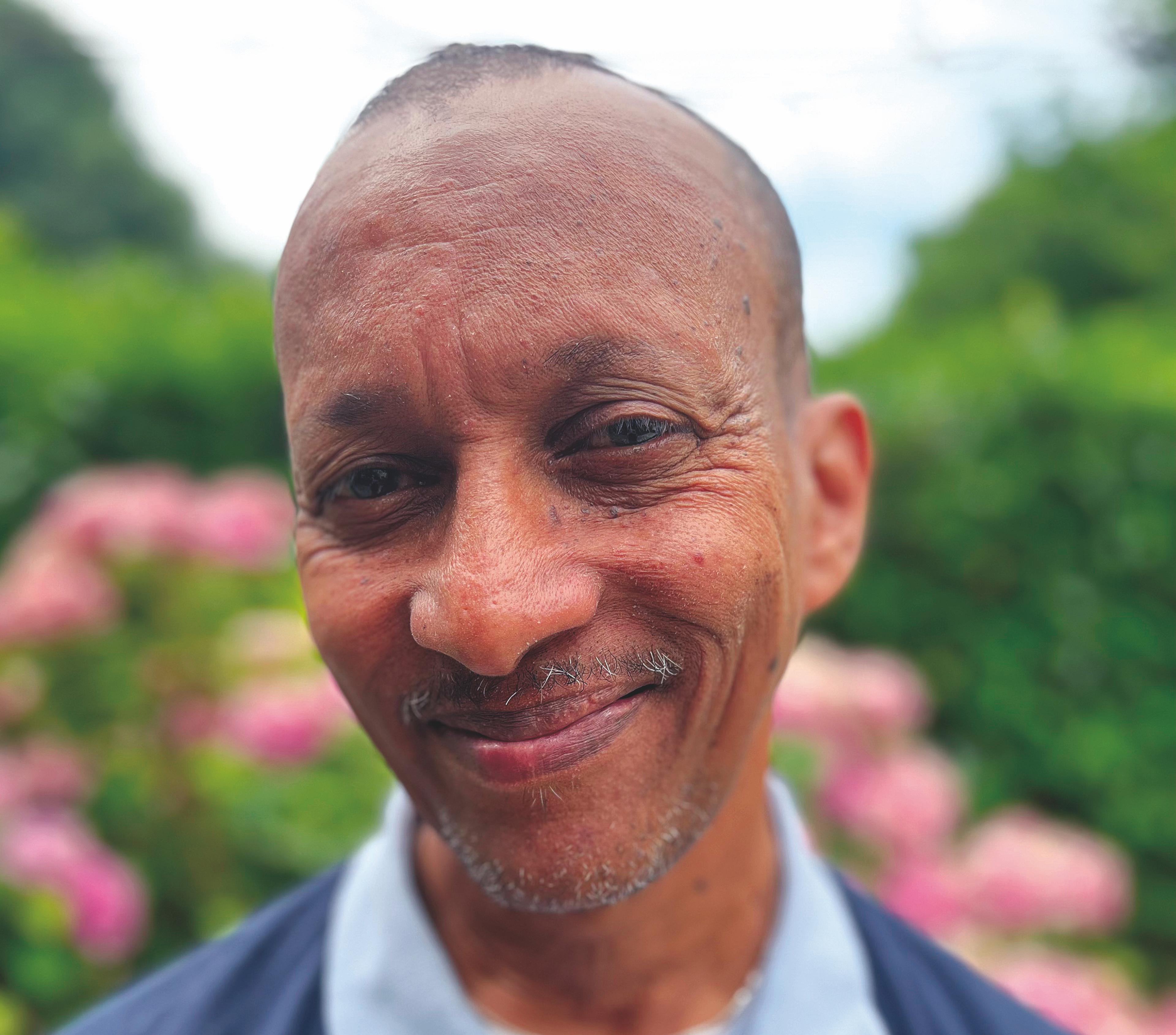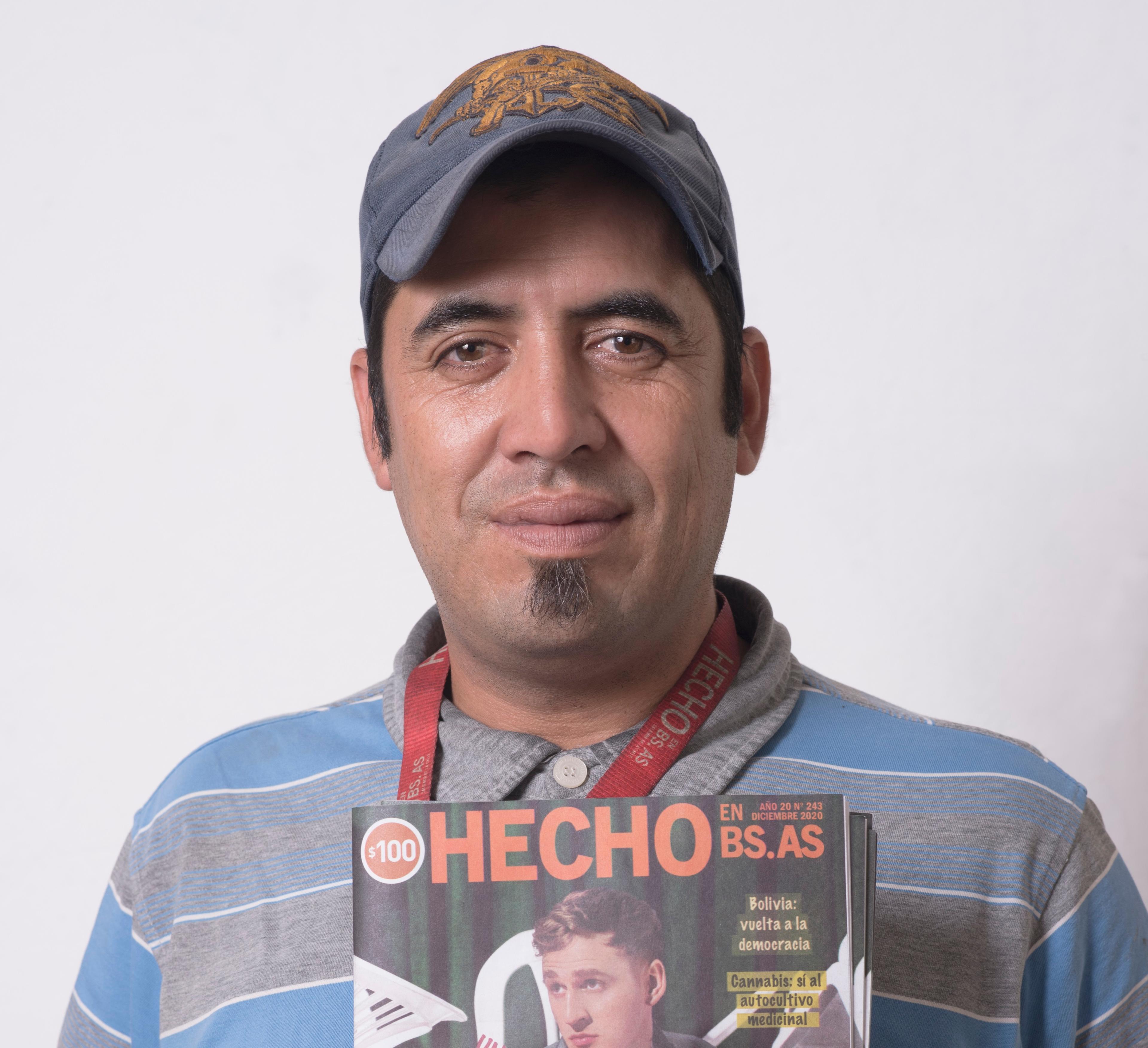Megaphone’s Climate Disaster Project: “I pray for them that they all get their lives back”
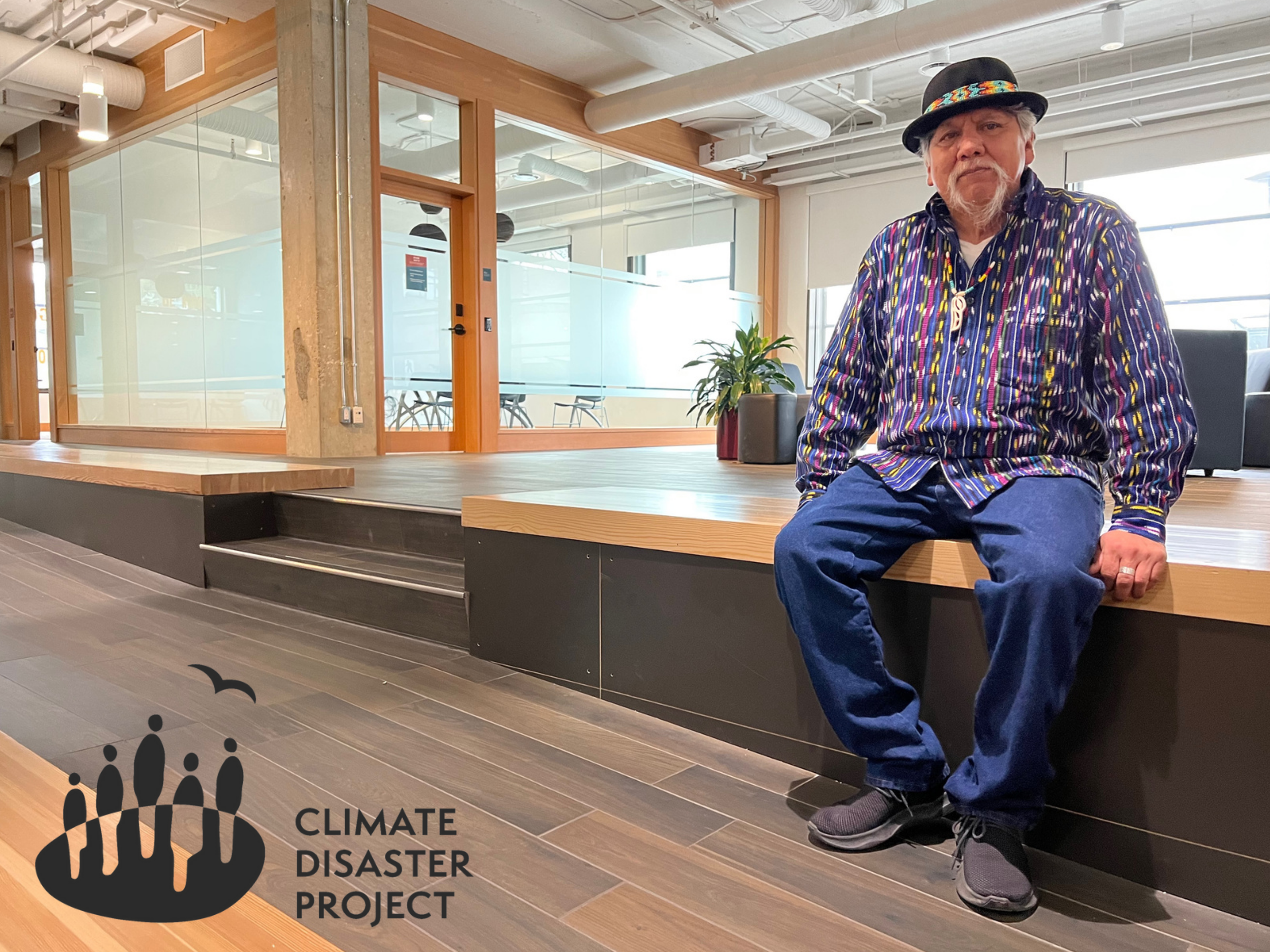
Peter Thompson, who is a grandfather of four, believes the health of the planet is of utmost importance. Without Mother Earth, we have nothing, he says. Photo by Sean Holman.
By Peter Thompson
as told to Sean Holman and Sarah Suleman
- Vendor stories

As world leaders make potentially generation altering decisions about the future of planet Earth, people on the margins are experiencing first hand the impact of environmental degradation and climate change. A collaborative storytelling endeavour called the Climate Disaster Project - which employs a trauma-informed co-creative process - collects first-hand accounts of what it was like to survive recent heatwaves and wildfires in British Columbia, Canada. Megaphone vendor Peter Thompson’s input in the project resulted in this story about when, in the summer of 2021, he was living in a basement suite with his brother and heard his hometown had been destroyed during the heatwave that blanketed western North America.
East Vancouver, Canada
Pacific Northwest Wildfires, 2021
Peter Thompson is an East Vancouver resident who works with the street paper Megaphone as one of its writers, photographers and vendors. When he was young, Peter says he was “all over the place,” living in and around small town British Columbia. That included growing up in Lytton and working with his father and brothers in the logging industry at age 16.
“The work was hard, but I was used to that because, as kids, our daily chore was to get wood and split wood, chop wood, and everything,” Peter remembers. “So you had that strength to do stuff like that.”
After five years of splitting and chopping, Peter took up carpentry at Kelowna’s Cariboo College.
“I like working outside where you get the fresh air. It’s a lot better than working inside in an enclosed space.”
He says he moved down to Vancouver “on a whim” and became involved with Megaphone after receiving an honourable mention during one its photo contests.
“It was of a dog and a cat. They were both friends. They were sitting on the armchair on either side, and my sister was in the middle,” he says, describing his prize-winning black-and-white photo. Soon after, he started writing for Megaphone and selling the magazine.
“I was a bit nervous, a bit scared, about doing that and hiding away in this one little spot.”
But the sales he made helped him get over that nervousness.
In the summer of 2021, he was living in a basement suite with his brother when he heard his hometown had been destroyed during the heatwave that blanketed western North America.
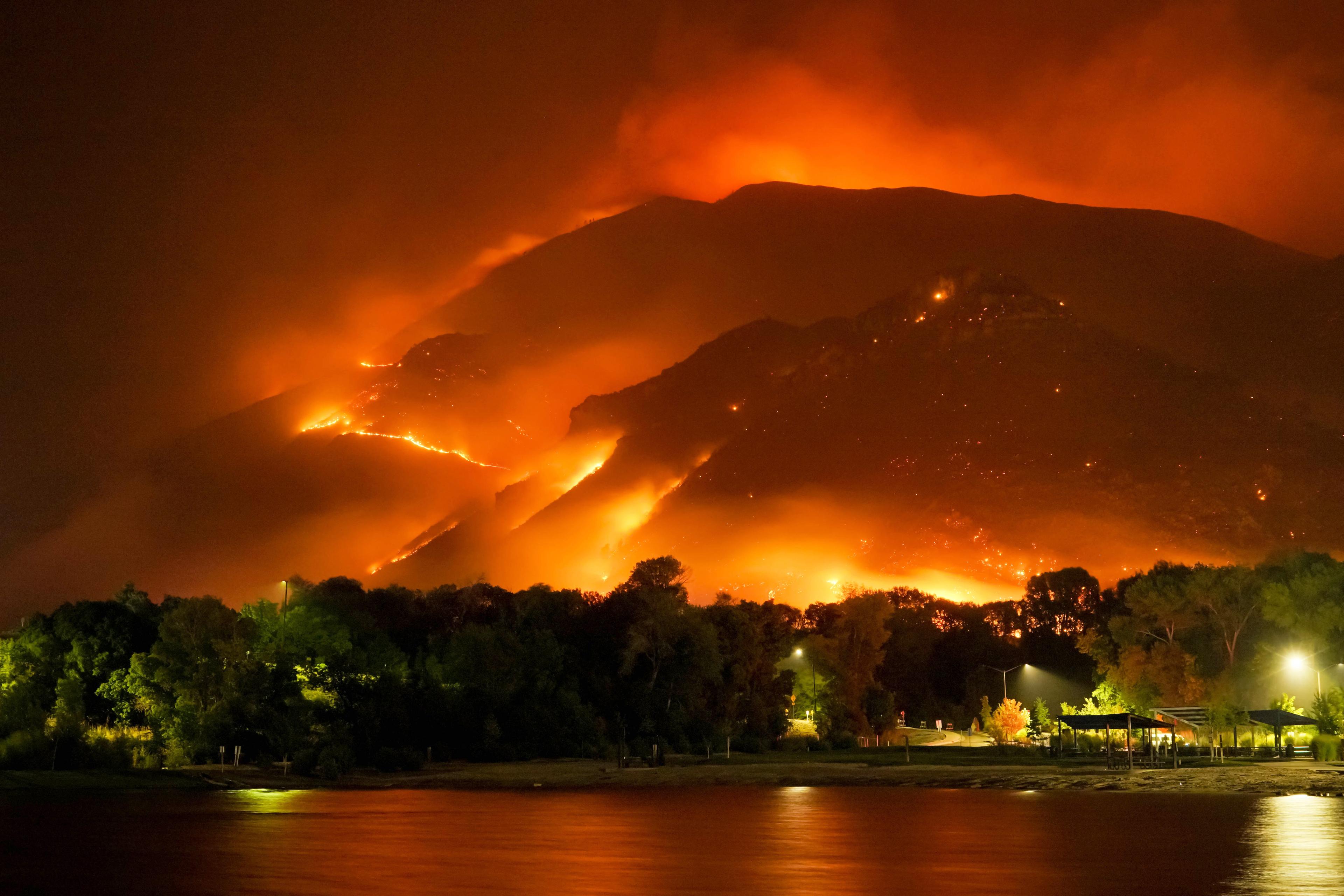
In 2021, B.C. suffered devastating wildfires, heatwaves and flooding — evidence of climate change that will only grow more severe in the coming decades. Photo by Mike Newbry / Unsplash.
Lytton’s a nice place. It’s a community where everybody looks out for each other and everybody knows each other. You go from your aunt's and your uncle's to everybody's places. You'd always have somebody there for you, or you're there for somebody else. It's just a community that has a lot of respect for each other.
It gets pretty hot up there, in the summertime. So I was glad they had the swimming pool. Or you could go up to the lakes, like Botanie Lake or Mud Lake.They have some lakes up there that you could swim in, go fishing. The scenery’s nice. You got a lot of mountains up there. It’s mountains everywhere. You got pine trees. You got sage.
I was watching the news when that came on and showed the town of Lytton burning. Because it’s a really windy city, that fire just blew right through and burned the whole town down. People only had 20, 25 minutes to get out of there. If ithappened in the nighttime, there wouldn’t be anybody. There were only two people that never made it out.
It was hard to get ahold of relatives because the phones weren’t working. The cellphone [towers] and everything else burned too. And you’re still watching the news. It said that a lot of them were going to Kamloops and some were going to Merritt. But the fire was going that way every day that passed, too.
I got a couple of my cousins online through Facebook and they said they were OK. They were saying some people were in Hope. My cousin went to Kamloops. She said she was OK and all the other cousins were OK. One of my other cousins was going up there, so I went to Save-On-Foods. I got $500 worth of gift cards, and I gave them to him to bring up to Kamloops so that they could have something to eat.
We should be getting help with these disasters and climate change should be top priority. This world's got to get together and talk about it. They got to pressure each government that climate change is more important than their oil lines and these wars that are going on.
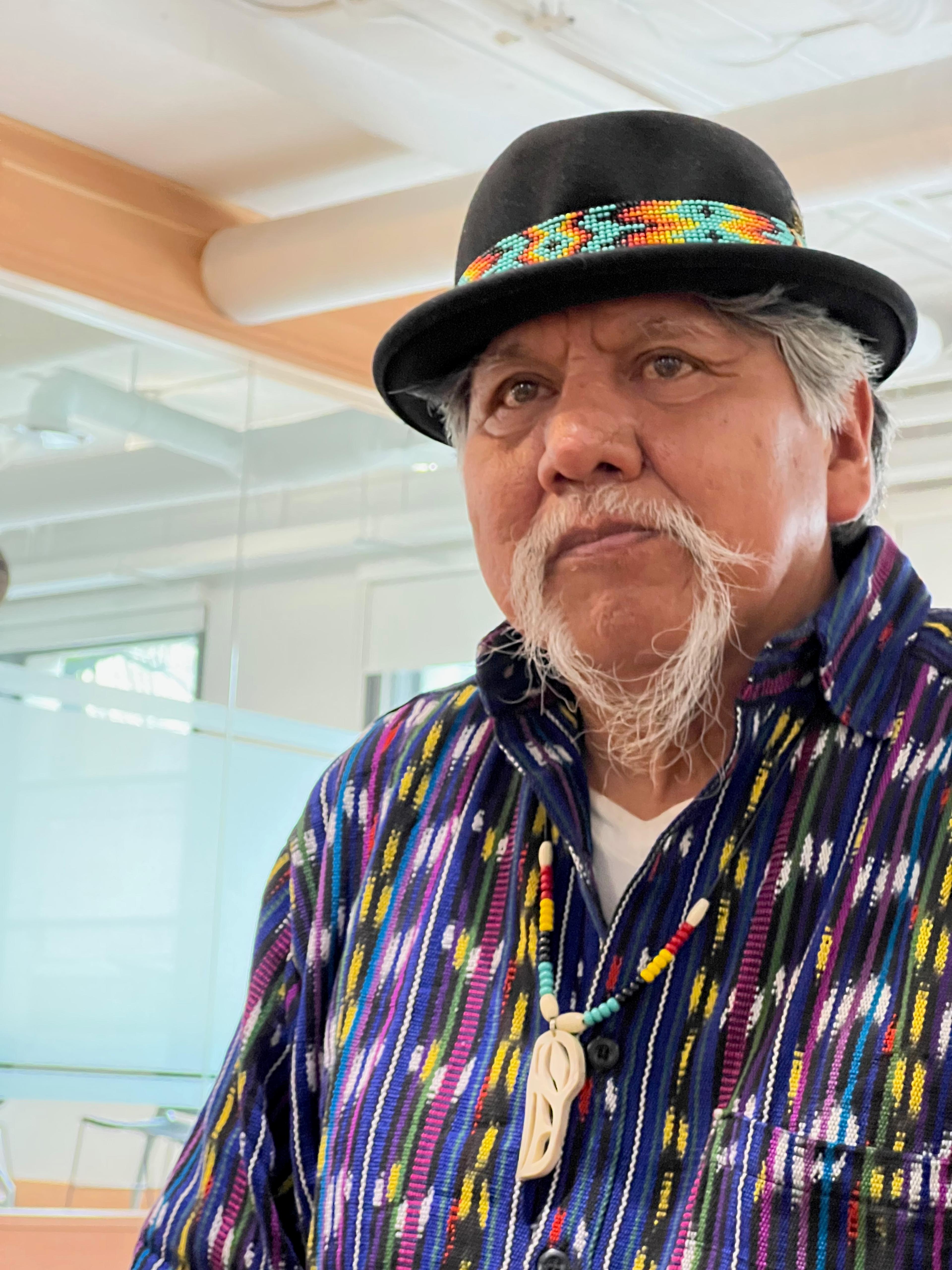
Photo by Sean Holman
I felt really bad that there's nothing I could do or nothing that could be done to save our town because that town's a gem to everybody that lived there. I haven't been up there since the fire because I don't really want to go up and see the town like that, all fenced off.
What I think is hardest is the Elders that lived there for years, and years and years. All of a sudden, they have nothing. It'll be harder for them because they're used to their everyday living. And now they have to live somewhere else, where they don't really know people and it isn’t their home, not the home that they built. Often, I pray for them that they get their lives back. They started to clean up there. I don't know when they'll rebuild.
They need homes that are fireproof because Lytton's always hot, and it's going to get hotter and hotter. And it's not something that our government shouldn’t deny.
We should be getting help with these disasters and climate change should be one top priority. This world's got to get together and talk about it. They got to pressure each government that climate change is more important than their oil lines or their gas lines going through and these wars that are going on.
Mother Earth needs that. Right now, she's crying for it. That's why we're having all these disasters. She's getting angry, and she says, “I need some attention. You guys are forgetting about me, burying me in concrete. And I'm the one that gives you life. I'm the life giver.” She gives you the medicine. She gives you the water. Everything that you got, she gave you for surviving. And, without her, we won't survive.
Sean Holman is the Wayne Crookes Professor of Environmental and Climate Journalism at the University of Victoria. A documentarian and award-winning investigative journalist, he researches the intersection between climate change, democratic decline, and uses/misuses of information.
Sarah Suleman is a journalism and computer science student at the University of Victoria. She’s been a podcast producer and journalist for CFUV 101.9, as well as a freelance reporter for the Martlet, the University of Victoria’s student newspaper.
